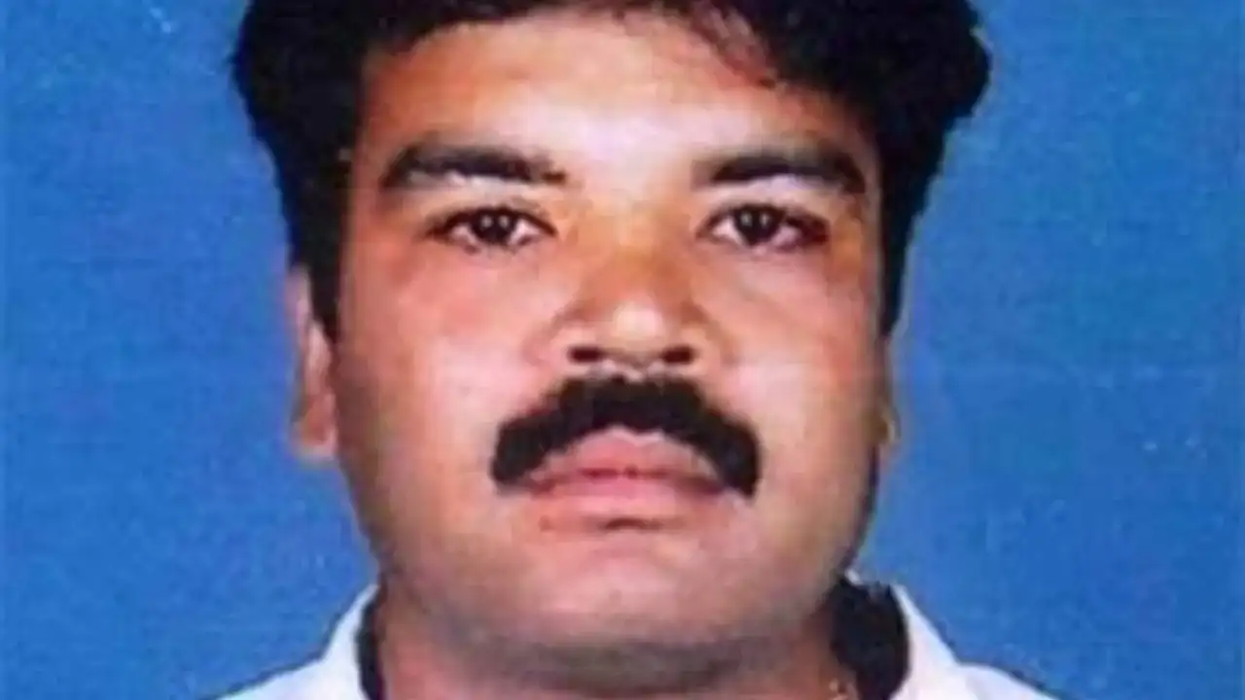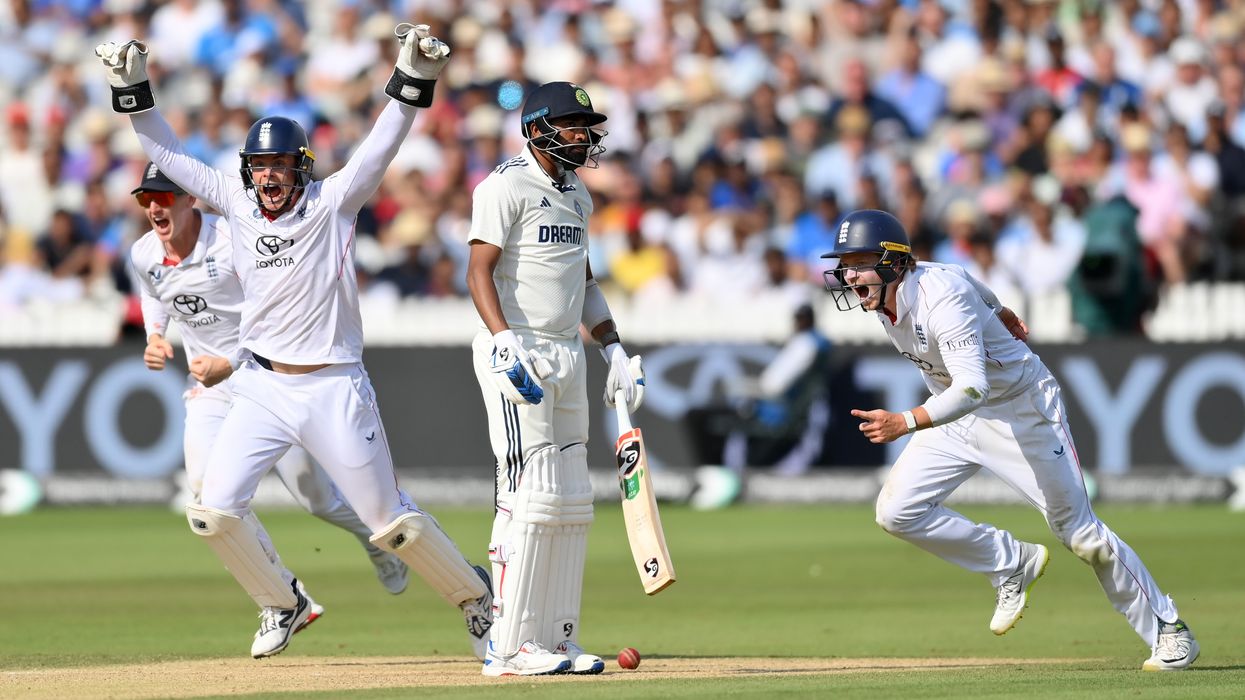IT HAS been a “fantastic year” for Mohit Bakaya. As the controller of Radio 4 and director of speech for the BBC, he has taken his part of the corporation to dizzying heights.
Lest we forget, 2024 was defined by political upheavals, a shifting media landscape, and the evolving listening habits of audiences. But Bakaya took huge risks – changing the Radio 4 schedules – while keeping one of Britain’s most cherished institutions relevant in the digital age.
“It was a fantastic year actually,” he told the GG2 Power List. “We had some very good RAJAR (Radio Joint Audience Research) results in the last quarter. Radio 4 went up to nearly 10 million listeners. Five Live had its highest numbers since 2014, driven by the Euros and the Olympics.”
Radio 4 is known to be the most politically and culturally influential in Britain. The king and queen listen, and Prince Harry guest edited the Today programme. Every political wannabe, from the prime minister down, knows that Radio 4 can make or break careers.
And it is Bakaya who, after six years in charge, decided it was time for the most extensive reshuffling of Radio 4’s schedule in 25 years for the station and set the direction for the nation’s speech audio content.
“It was a very big moment,” he said. “We moved quite a few things around to better align with when audiences are listening. We prioritised health and food programming, and with two major elections, the UK and the US, our news coverage was incredibly busy and crucial.”
For a network as deeply embedded in British culture as Radio 4, change is a delicate process. Listeners have their routines, and any disruption can provoke strong reactions. “We didn’t move masses, we tweaked,” Bakaya explained. “People set their clocks by the schedule, and they like things to be at a certain time. You don’t mess around with that.”
Among the notable shifts was the move of The Archers omnibus from 10am to 11am on Sundays. That allowed for a seamless transition from Broadcasting House to Desert Island Discs. “That boosted Sunday mornings massively,” Bakaya said. “It also encouraged more digital listening to The Archers omnibus on BBC Sounds.”
Other adjustments included relocating high-profile narrative podcasts to morning slots and repositioning arts programmes like This Cultural Life and Add to Playlist to offer “a bit more of a respite from news.”
Bakaya was clear why these “tweaks” were important. “Radio 4 isn’t just news, it’s all kinds of things. The changes were about giving people a more varied diet at times when they’re most likely to be listening.”
For all the strategic planning, Bakaya is sure about one thing. As ever with this deeply intellectual programme maker, it was about the audience, stupid. Radio 4’s devoted and vocal audience. “One of the great joys of Radio 4 is how passionate people are about it,” he acknowledged. “I don’t know if there’s another service in the UK where people feel so connected. Their relationship with Radio 4 existed long before I was controller and will continue long after I’m gone.”
What is clear about the Radio 4 audience is that it does not hesitate in making its feelings and views known. “We had made some changes in the evening that received pushback, so we reversed them,” he said, without a hint of defensiveness. “I’m never dogmatic about this. Sometimes we have to change things due to budget constraints or audience research, but we always listen.”
But the schedule shake-up has gone well overall, said Bakaya, and he is particularly proud of his station’s projects which defined the year. Café Hope, a new Monday morning programme, was one of them. “It’s an attempt to reflect some of the amazing things people are doing across the country that often go unnoticed,” he said. “With so much grim news in the world, wars, political crises, it’s important to remind ourselves of the good.”
Another standout was To Catch a Scorpion, a podcast that had real-world impact. “This was an investigative piece that helped track down and arrest a human trafficker just two days after it aired,” he revealed. “Sue Mitchell and Rob Laurie made an incredible podcast that literally changed lives. That’s Radio 4 at its best.”
Meanwhile, Three Million, a series about the Bengal famine, unearthed previously unknown historical narratives. “It was genuinely original research,” Bakaya declared with pride. “People didn’t realise the extent of the famine’s impact. It won numerous awards this year, and that’s something I’m hugely proud of.”
Then there was Orwell versus Kafka, a weekend-long exploration of two literary giants, and the Reith Lectures, which tackled the theme of violence in society. “The lectures were incredible,” he said. “But the real magic happened in the Q&A sessions. We had former criminals sitting alongside victims and experts, having the most civilised, emotional, and constructive conversations about how we address violence in our culture. That’s what public service broadcasting should be about.”
Bakaya is a humble man, quiet, fiercely and securely intelligent, someone comfortable in his own skin – and is someone who analyses with facts. For example, the typical Radio 4 listener is white, 55-plus and in the ABC socioeconomic group. In other words, terribly bright, fairly establishment and the stereotype of a Brit who wants to know what is going on in the world.
Yet he knows the face of Britain is changing, and that black and brown people listen to Radio 4 and devour podcasts. That is why you hear more racially diverse voices and topics on a station many would consider, wrongly, male, pale and stale. The world’s longest running radio soap, The Archers, has had a south Asian heritage family, and it is not shying away from the racism the young boy faced at the hands of a middle-aged bigot.
The media industry continues to shift towards digital consumption, and Bakaya is keenly aware of the need to balance tradition with innovation. “We want to ensure that people can listen to our best programmes in their own time,” he said. “BBC Sounds is a critical part of that strategy.”
As he prepares for another year of steering the BBC’s flagship speech network, one thing is clear. Bakaya is determined to ensure that Radio 4 and BBC speech remain an integral part of the British way of life – whether listening on air, online, or on-demand.













